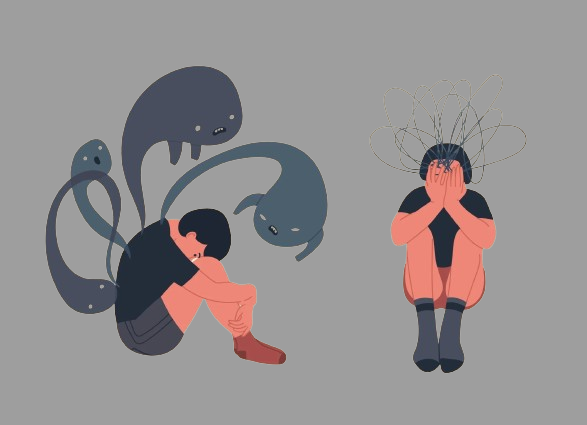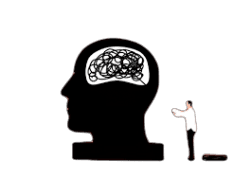The sense that something is wrong with you, such as someone monitoring you or trying to harm you, is known as paranoia, even though there is no concrete evidence to support it. Many people experience it at some point. If your worries are too frequent, they might be unsettling even if you are aware that they are unfounded.
This article helps in handling and dealing paranoia.
What is paranoia?
Thinking in a paranoid manner entails having unfounded mistrust and suspicion of other people. It frequently incorporates beliefs that someone is trying to hurt you or is out to get you. Paranoid ideas regarding dangers to other individuals, your culture, or society might also occur.
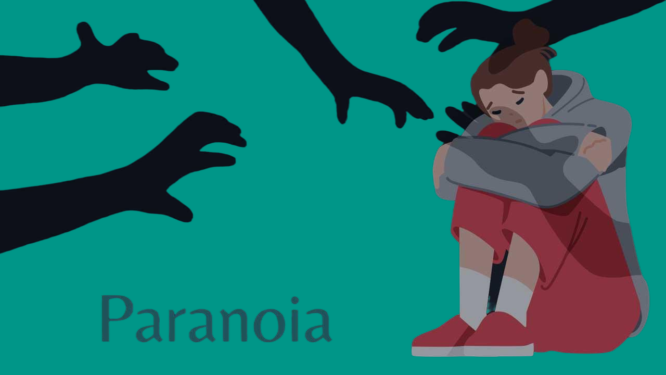
The degree of paranoia varies, and it may be transient or persistent. Paranoia is the most prevalent symptom of psychosis, affecting about 70% of those who suffer from it. However, modest paranoia is not a prerequisite for psychosis. In actuality, the overall public suffers from moderate paranoia rather frequently.
One kind of delusion that can accompany paranoia is an unwavering belief in an untruth. Delusions are not always about threats or emotions of harm. For instance, you might believe that you are the object of someone else’s affections—typically someone significant or well-known. It’s not paranoia here.
Signs and symptoms
Even in situations where there is no evidence of malice, paranoia can lead to uncontrollable feelings of fear, mistrust, and suspicion regarding the intentions of others toward you. Relationship problems might arise from paranoia since it makes it difficult to trust people.
Being paranoid can make you become:
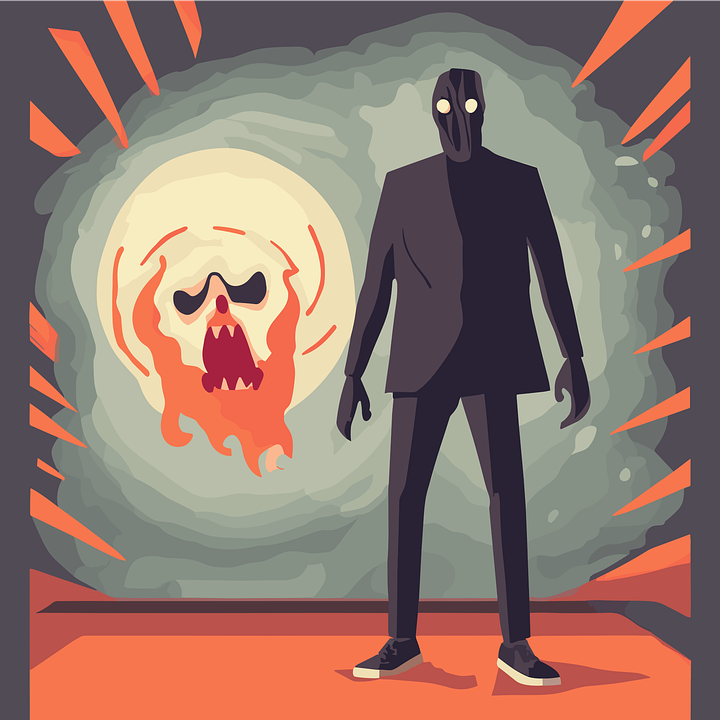
- Feeling suspicious of everyone in your life and believing they are plotting to use you or are working against you behind your back
- Shy because you think people may use your ideas or personal information against you
- unable to rest or unwind due to your constant anxiety and worry
- Incredibly sensitive to criticism; she even interprets subtle glances or remarks as insults.
- aloof, distrusting, domineering, and envious
When you’re paranoid, you could always be upset and dispute because you think you’re right and everyone else is out to harm you. You take a long time to forget grudges.
Paranoia is a fear or mistrust of the outside world as much as of the individuals you know. The world appears hazardous to you. You could think there is a conspiracy.
Causes of paranoia
The causes of paranoia is unknown and contingent upon the underlying ailment. Among the theories are:

- Genes: There is a dearth of reliable research on genes. While some research point to a genetic connection, others do not. Furthermore, it’s unknown if a genetic tendency for paranoia exists and if it is inherited.
- Brain chemistry: Neurotransmitters, or brain chemicals, are the building blocks of ideas and emotions. A number of medications, including amphetamines, cocaine, and marijuana, change the chemistry of the brain and can cause paranoid thoughts, feelings, and behaviors. Because of this, some scientists speculate that paranoia could be a brain chemistry condition. We don’t know the causes of this potential illness.
- Traumatic life events, such as childhood maltreatment, can alter a person’s thoughts and emotions for the rest of their life.
- Stress reaction: According to certain research, those who have endured prolonged periods of extreme stress, such as prisoners of war, are more likely to develop paranoid. It’s unknown how stress can lead to paranoia.
- A confluence of variables: paranoia could be brought on by a number of genetic and environmental factors acting in concert.
Managing paranoia
Individuals who suffer from paranoid typically do not seek the diagnosis or treatment of a mental health professional because they have a strong fear or mistrust of other individuals. It’s possible that they won’t acknowledge they have an issue or believe that a psychologist or counselor genuinely wants to assist them.
Psychotherapy and medication can help a person with paranoia control their symptoms, provided that they are ready to seek treatment and have faith in their physician.
Counseling or psychotherapy
Counseling or psychotherapy is the primary treatment for paranoia. You will acquire coping mechanisms in counseling, including how to put your faith in other people. You’ll discover ways to improve your communication abilities, empathy, and sense of self. You and your family need to have patience since counseling takes time to work.
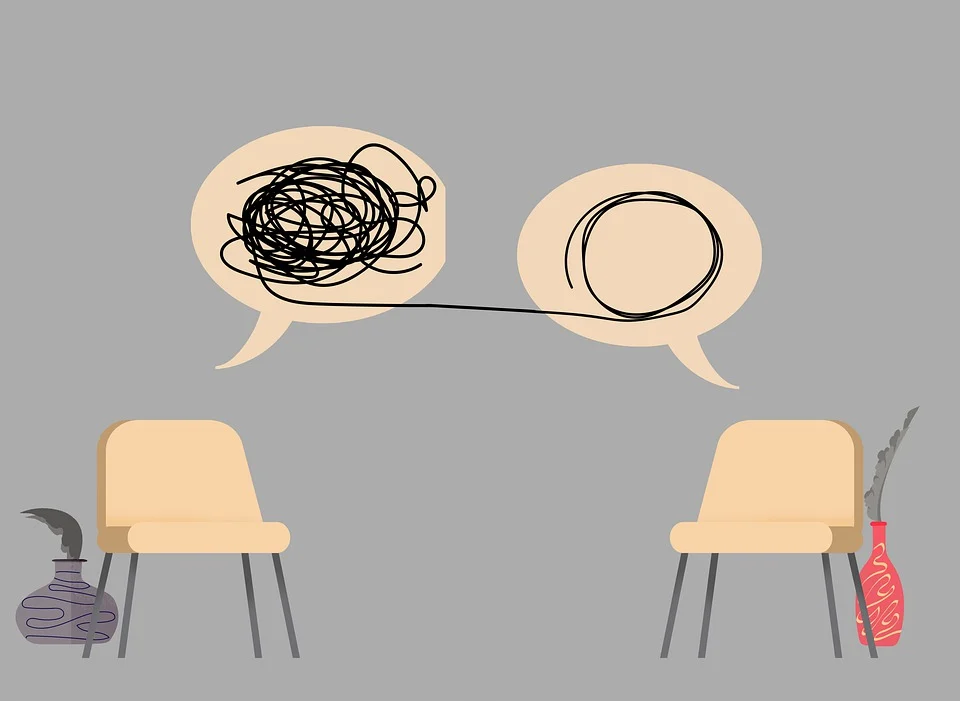
You and your family may get individual or group psychotherapy or counseling.
Cognitive behavior therapy
Treating and controlling your paranoia can be accomplished with the help of cognitive behavioral therapy (CBT). CBT employs strategies to help you create healthy coping mechanisms and modify your pathological views about other people. CBT helps reduce worry and anxiety.
Together with your therapist, you will examine your beliefs, doubts, and anxieties more closely. After discussing the evidence that suggests someone is trying to hurt you, you will acquire a more constructive perspective on their intentions.
Medications
Your doctor may recommend anti-psychotic, anti-anxiety, or antidepressant medication if you experience symptoms of paranoia in addition to anxiety or sadness.
Hospital care
Individuals who exhibit extreme forms of paranoia, such as making threats, trying suicide, or experiencing delusions, may be experiencing a mental health crisis. A hospital stay may be necessary for treatment until they regain stability.
A psychiatrist will assess you while you’re in the hospital. To assist you relax and stabilize, they might recommend electroconvulsive therapy (ECT, sometimes known as shock treatments), psychotherapy, or tranquilizers.
Ask for help.
Speak with a trusted friend or family member about your suspicious thoughts or feelings. If you need someone to work through your reactions to difficult situations or just listen, go to them.

Your paranoia may worsen if you’re alone and isolated. You might be able to control your paranoid thoughts and behaviors by attending peer support groups.
Dispute your suspicions.
Another option is to attempt challenging your paranoid ideas or emotions. Look more closely for proof of conspiracies or attacks against you. Before you let your fear or beliefs to control you, consider how others might respond to them.
Self-Management Techniques
You can effectively and healthily control your daily paranoia by practicing self-care. Consult with your therapist about self-care techniques.
- Make sure you get enough good sleep. Uncertainty can cause insomnia. You lie awake in fear or panic. Inadequate slumber also intensifies symptoms and sets up paranoid episodes. Your brain functions better to process ideas and emotions in a healthy way when you receive adequate deep, restorative sleep.
- Activity and nutrition. To maintain steady blood sugar, eat meals on a regular basis. Engage in regular exercise to reduce tension and anxiety.
- Steer clear of alcohol and drugs. To dull your emotions, you might drink alcohol or take drugs, but these actions can exacerbate your paranoia. Additionally, having paranoia increases your risk of developing a drug misuse problem. See your therapist if you require assistance in stopping your drug and alcohol use.
- Practice mindfulness. You can learn and practice techniques to become more self-aware and in charge of your thoughts, much like with meditation. You can learn to relax, also cope with your negative emotions or beliefs, and calm down by practicing mindfulness. Also You discover how to identify and release your body’s warning signals of anxiety and tension, such as a racing heartbeat and stiff muscles. CBT may be combined with training in mindfulness practices.
- Deliberate breathing. Breathe naturally to help you relax and de-stress. Spend some time concentrating on your breathing. Breathe in from your nose, out through your mouth. Let your shoulders drop as you inhale. With your palm on your abdomen, experience each breath as it enters and exits. Inhale quietly, slowly, and deeply.

